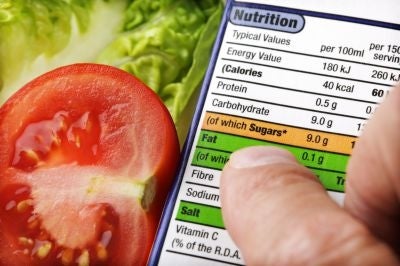The low-fat myth: How we fell for the diet hype
Butter is in and sugar is out, but does anyone really know the full story?

Your support helps us to tell the story
From reproductive rights to climate change to Big Tech, The Independent is on the ground when the story is developing. Whether it's investigating the financials of Elon Musk's pro-Trump PAC or producing our latest documentary, 'The A Word', which shines a light on the American women fighting for reproductive rights, we know how important it is to parse out the facts from the messaging.
At such a critical moment in US history, we need reporters on the ground. Your donation allows us to keep sending journalists to speak to both sides of the story.
The Independent is trusted by Americans across the entire political spectrum. And unlike many other quality news outlets, we choose not to lock Americans out of our reporting and analysis with paywalls. We believe quality journalism should be available to everyone, paid for by those who can afford it.
Your support makes all the difference.Don’t eat fat, you’ll clog your arteries! Oh… wait, hang on, put down the low-fat spread, it’s full of trans fats that will give you cancer. So have some butter. But you should probably cut out dairy. Apart from the risk of calcium and Vitamin D deficiencies... And don’t forget your five a day. Or was that 10? And NOT through fruit juice! It’s full of sugar! Speaking of which, you really should cut down on the sugar in your diet. No, no, no, don’t have artificial sweeteners - they’re worse! Or are they?
This week’s revelation that the advice we’ve been peddled since the 1970s - that to prevent heart disease we should all follow a diet low in saturated fat - was not based on solid scientific evidence and should never have been introduced, is hardly a surprise. A new report suggests that the original study was too simplistic and based on a “small number of unhealthy men”.
So what exactly should we eat? Of late, there has certainly been a shift back to fats, with coconut oil and “real” butter soaring in popularity along with the Paleo movement. And increasingly sugar is being recognised as the real enemy. But no one really seems to know for sure, and it certainly isn't as simple as cutting out one to replace with the other.
It appears that the NHS is just as confused as we are. On a recent visit to hospital, a friend was advised to take a certain medication with a meal containing fat. “So a bacon sandwich, or a sausage sandwich,” was the sage advice from the nurse. “I’m vegetarian,” she replied, a term met with consternation as the nurse hastily riffled through her notes for alternatives.
This is not solely the NHS’s fault - the low-fat diet has been promoted across the Western world. In the US in particular, a country plagued by obesity, it has been a mantra, and a marketing goldmine. Fat-free, low-fat and ‘lite’ products are crammed into supermarket shelves - you can even gorge yourself you fat-free Pringles. Here, we’ve fallen for the hype too, buying low-fat yogurts, breakfast cereals and even bread, which are often supplemented with chemicals, sugar or good old-fashioned air. And for 40 years, our befuddled health system has patted us on the back for it.
It’s shocking to think that in an age of three-parent babies, incredible prosthetics, and live-saving new treatments being developed all the time, there is so little attention being paid to one of the few things we can control in life - how we fuel our bodies. There is more than a little truth in the phrase “you are what you eat”, and with the terrifying rise in obesity, diabetes and a number of potentially avoidable diseases, it is becoming more of an issue than ever.
So come on, NHS, step up and give us some proper advice. Invert the food pyramid, dispel the myths we keep falling for and tell us a bit about what we are eating. Train your GPs on proper nutrition, commission the studies, update your guidelines. It may not be an easy task to cut through the weasel words of food manufacturers, but at least the public should know that if we want to know the truth about food, we can always turn to our doctors.
Join our commenting forum
Join thought-provoking conversations, follow other Independent readers and see their replies
Comments